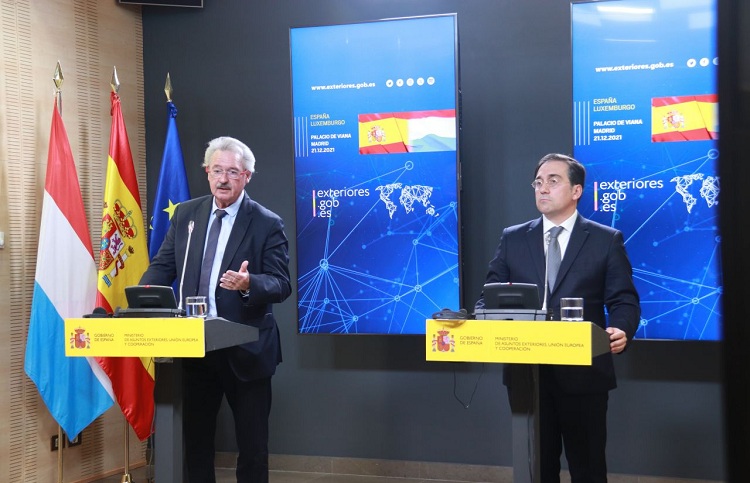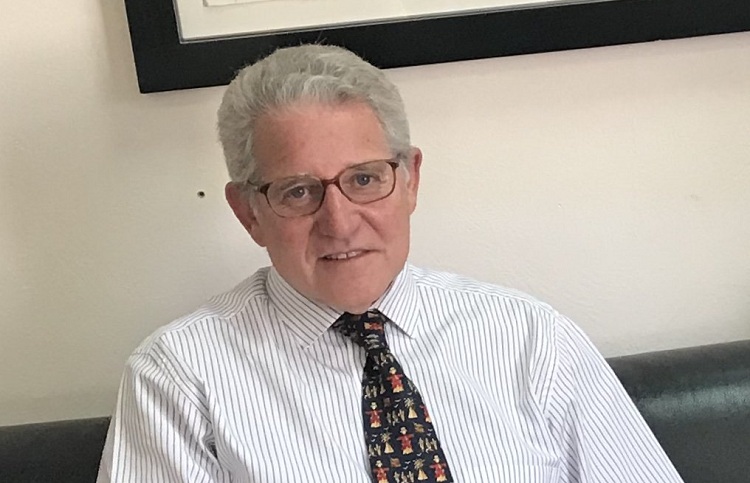The Diplomat
The Minister of Foreign Affairs, José Manuel Albares, received yesterday at the Palacio de Viana in Madrid his Luxembourg counterpart, Jean Asselborn, with whom he discussed various current international and European issues, such as the COVID-19 crisis, the situation in Ukraine and the attacks on the rule of law in Poland and Hungary.
“The political ties between our countries are very strong, we are two clearly pro-European countries and we have institutions, such as the Charles of Antwerp Foundation, in which Luxembourg holds the presidency this year and through which, and through Luxembourg, we strengthen our relationship with the Benelux,” said Albares during the joint press conference following his meeting with Asselborn, “the dean of EU foreign ministers.”
During the meeting, the two ministers discussed ways to strengthen collaboration and exchanges in certain key sectors, such as the ecological transition and investments in renewable energies, the ICT sector and the logistics sector.
They also held an in-depth discussion on the main European dossiers, including the agenda for the Spanish Presidency of the EU, and confirmed the convergence of views between Spain and Luxembourg on issues such as economic recovery, migration, free movement and the rule of law in the EU. In this regard, the Luxembourg minister described as “disconcerting” that a country like Poland, with “an obscure history in terms of the rule of law”, is heading towards the “authoritarian” path, as has “Hungary since 2010”, which, he warned, is “unacceptable in the EU”.
In health matters, the Spanish minister presented to his Luxembourg colleague “the Spanish initiative Vaccines for all in favor of a European strategy that promotes the production and distribution of vaccines, as Spain has been doing for months,” explained Albares. Asselborn and Albares also defended the need to preserve freedom of movement within the EU and the principles of the Schengen area. “We hope to get through the most difficult times and for the borders to be open again,” Asselborn told the press conference. “There are 7,500 Spaniards living in Luxembourg and since 2011 the number has doubled,” because “there are many Spanish citizens working in the European institutions, especially the Court of Justice of the EU,” he continued. “For Luxembourg it is an honor to receive so many Spaniards,” he added.
During the meeting, the two ministers also exchanged views on the enlargement of the European Union, EU migration policy, the situation on the EU-Belarus border – including “the unacceptable use of irregular migration flow as a political instrument,” in Albares’ words – and Russian threats to Ukraine. “We should not underestimate what is happening on Russia’s border with Ukraine,” Asselborn stated. “The EU has clearly warned Russia that any military intervention would have serious economic consequences and we both agree that we must prevent the worst from happening,” he continued. “Europe has to be present in this crisis, we cannot allow Russia and the United States to be the ones negotiating security policy in Europe, when a military intervention would have huge consequences on our continent,” he added.







